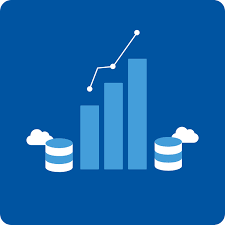The Power of Data Analytics
Data analytics is a powerful tool that has transformed the way businesses operate and make decisions. By analysing large sets of data, organisations can gain valuable insights that can drive strategic planning, improve operations, and enhance customer experiences.
One of the key benefits of data analytics is its ability to identify trends and patterns that may not be apparent through traditional analysis methods. By using advanced algorithms and machine learning techniques, businesses can uncover hidden correlations in their data that can lead to more informed decision-making.
Moreover, data analytics enables companies to predict future outcomes based on historical data. This predictive capability allows businesses to anticipate market trends, customer behaviour, and potential risks, giving them a competitive edge in today’s fast-paced business environment.
Another advantage of data analytics is its ability to personalise customer experiences. By analysing customer data, businesses can tailor their products and services to meet individual preferences and needs, ultimately enhancing customer satisfaction and loyalty.
In conclusion, data analytics is a game-changer for businesses looking to stay ahead in an increasingly data-driven world. By harnessing the power of data analytics, organisations can unlock new opportunities, drive innovation, and achieve sustainable growth.
Five Essential Tips for Enhancing Your Data Analytics Practices
- 1. Ensure data quality by cleaning and validating your datasets regularly.
- 2. Use visualisation tools to present your findings in a clear and compelling way.
- 3. Utilise statistical techniques to derive meaningful insights from your data.
- 4. Stay updated with the latest trends and technologies in the field of data analytics.
- 5. Collaborate with domain experts to better understand the context and implications of your analysis.
1. Ensure data quality by cleaning and validating your datasets regularly.
To maximise the effectiveness of data analytics, it is crucial to ensure data quality by regularly cleaning and validating your datasets. By maintaining clean and accurate data sets, businesses can prevent errors and inconsistencies that may skew analysis results. Cleaning and validating data involves identifying and correcting any inaccuracies, duplicates, or missing values in the datasets, ensuring that the information used for analysis is reliable and trustworthy. This process not only enhances the accuracy of insights gained from data analytics but also improves decision-making and strategic planning based on reliable information.
2. Use visualisation tools to present your findings in a clear and compelling way.
When utilising data analytics, it is essential to leverage visualisation tools to present your findings in a clear and compelling manner. Visual representations of data through charts, graphs, and interactive dashboards can help convey complex information in a more digestible format. By using visualisation tools effectively, you can enhance understanding, facilitate decision-making, and communicate insights with stakeholders more effectively.
3. Utilise statistical techniques to derive meaningful insights from your data.
Utilising statistical techniques is essential in the field of data analytics to extract valuable and meaningful insights from large datasets. By applying statistical methods such as regression analysis, hypothesis testing, and clustering, businesses can uncover patterns, trends, and relationships within their data that may not be immediately apparent. These techniques help in making informed decisions, identifying correlations between variables, and predicting future outcomes based on historical data. Statistical analysis plays a crucial role in transforming raw data into actionable insights that drive strategic planning and business growth.
4. Stay updated with the latest trends and technologies in the field of data analytics.
To maximise the benefits of data analytics, it is crucial to stay updated with the latest trends and technologies in the field. By keeping abreast of advancements in data analytics, professionals can leverage new tools and techniques to enhance their analytical capabilities and stay competitive in an ever-evolving landscape. Continuous learning and adaptation to emerging trends ensure that organisations can harness the full potential of data analytics to drive innovation, make informed decisions, and achieve strategic goals effectively.
5. Collaborate with domain experts to better understand the context and implications of your analysis.
Collaborating with domain experts is a crucial tip in the field of data analytics. By working closely with experts in specific domains related to the data being analysed, analysts can gain a deeper understanding of the context and implications of their findings. Domain experts can provide valuable insights into the industry trends, business processes, and unique challenges that may impact the interpretation of data analysis results. This collaboration not only enhances the accuracy and relevance of the analysis but also ensures that the insights derived from data analytics are effectively applied to real-world scenarios for informed decision-making.

No Responses